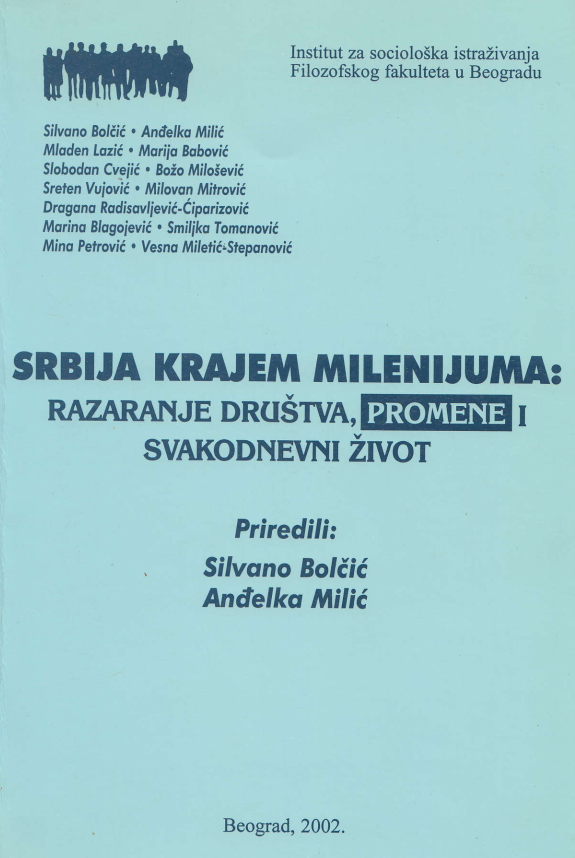
This collective volume stems from the research project “Serbia in Comparative Perspective” and continues, in theoretical and methodological terms, previous studies completed by the Institute examining changes in fundamental properties of the Serbian society, with special focus on stratification and inequalities. The bulk of the empirical data was collected by a survey conducted in late 1999 on the sample of 1202 respondents, in the area of the three largest cities (Belgrade, Novi Sad, Niš). The particular analyses contained in the chapters, largely conforming to the “paradigm of destroyed society”, offer a detailed picture of the dramatic developments in the period of the so-called blocked transition in Serbia in the second half of 1990s. The findings are divided into three segments: global social change, change in specific spheres (economy, migration, urban and rural living, religion), and everyday life of families.

